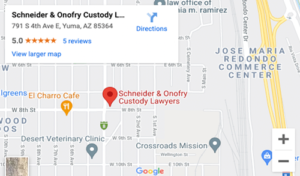Do Directors and Officers Owe Fiduciary Duties to Creditors?
Arizona follows the “Trust Fund Doctrine.” It was first recognized here in A.R. Teeters & Assocs. v. Eastman Kodak Co., 172 Ariz. 324, 836 P.2d 1034. (App. 1992), in which the Arizona Court of Appeals explained:
“The theory of the trust fund doctrine is that all of the assets of a corporation, immediately on its becoming insolvent, exist for the benefit of all of its creditors and that thereafter no liens nor rights can be created either voluntarily or by operation of law whereby one creditor is given an advantage over others.” Teeters, 836 P.2d at 1041 (citation omitted).
In Teeters, the court held that an officer, director, and stockholder who loaned money to the company breached a fiduciary duty owed to the company’s other creditors where (i) he caused the transfer of corporate assets to himself (ii) the transfer occurred while the corporation was insolvent; and (iii) the transfer had the effect of preferring him to the disadvantage of other creditors of the same priority.
A few points worth noting:
- The Trust Fund Doctrine is similar to, but in some ways broader than, the concept of a “preference” under the Bankruptcy Code.[1] Liability arises under state law and exists regardless of whether (i) the transfer occurs within certain proximity of a bankruptcy filing or (ii) a bankruptcy case is ever filed. There must be a showing, however, that the company was insolvent at the time of the transfer. E.g., In re Weinberg, 410 B.R. 19, 28-19 (9th Cir. BAP 2009). There is no fiduciary duty to, or trust fund for, creditors until then.
- Teeters‘ language appears to make the Trust Fund Doctrine applicable whenever, as a result of the transfer, “one creditor is given an advantage over others.” Thus far, it has been applied in Arizona only when the transferee is, or is related to, a director, officer, or stockholder. No reported Arizona case has been found applying it to transfers to non-insider, arms-length creditors.
- The source of recovery is a breach of fiduciary claim against the officer or director that caused the company to make the transfer. Liability, if established, is limited to the value of the assets received by the transferee.
- Query whether the doctrine will be applied and/or fiduciary duties extended where the transfer occurs within the “vicinity” or “zone of insolvency” or where it causes
the company to become insolvent. This issue has been addressed in other jurisdictions.[2] For now, Teeters‘ language suggests that in Arizona, the trust fund does not arise until the company becomes insolvent.
No Arizona cases could be found applying the Trust Fund Doctrine in the context of an Arizona limited liability company. It would seem logical, however, to do so.
The bottom line is that officers, directors, and others in control of a company’s affairs need to be careful about transfers made while the company is insolvent. Such transfers could result in liability to them where none previously existed.















